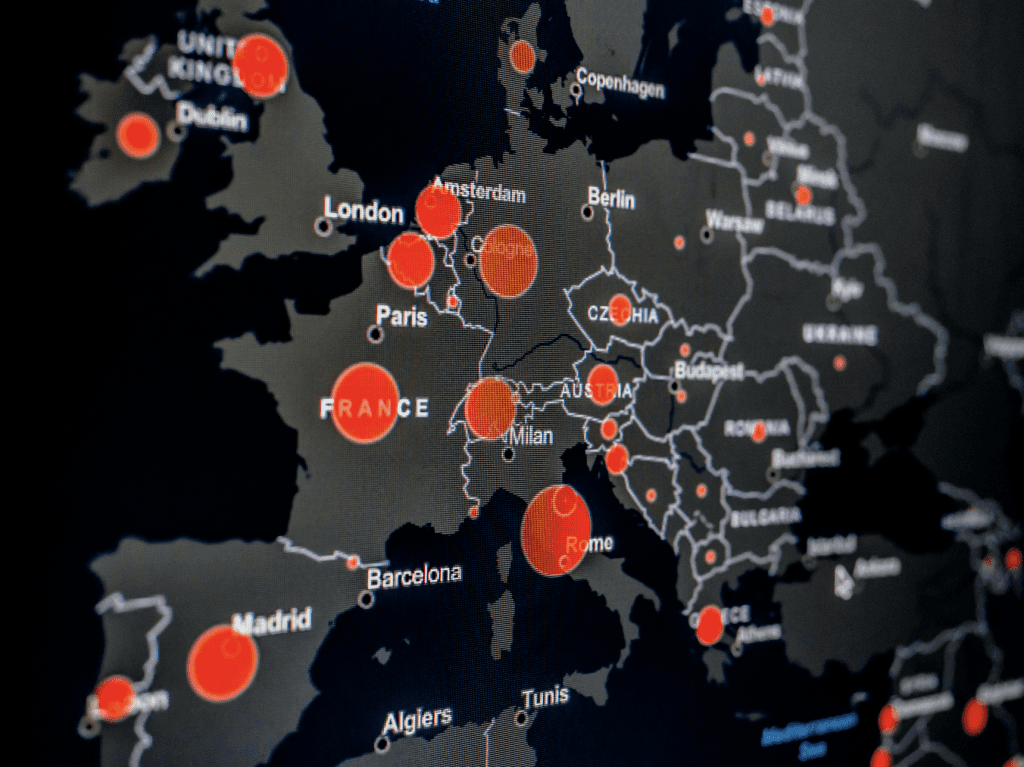
Why not use this enforced downtime to review your health and safety documentation with a free SIX MONTH trial of the EventSafetyPlan App – save time and now even more money with the code 6MTHSFREE – save £300 – sign up FREE
At some stage the Coronavirus lockdown will be over. People will return to work, children will return to school. Eventually, live events will also return. Things however will be different – here are some of our best guesses for event planners to consider in a post-Coronavirus Covid-19 lockdown world.
- Travel
All modes of travel have been hit by the pandemic but none so much as airline travel – this could affect the availability of flights for attendees, performers or speakers at events. Venues are often chosen because of their proximity to transportation hubs – but if the options have changed dramatically, consideration should be given to the best location for your event. - Accommodation
Many of the hotel chains are reviewing their cleaning processes and procedures (including Wynn Resorts, Hilton Hotels, the Accor Group and even AirBnB) – and developing new and detailed practises – this should go a long way to reassuring those who are staying overnight – however event organisers should look for venues and accommodation providers who have signed up to providing safe places for people to sleep. - Food Service
Many of the event food safety practices should already be in place for those handling, preparing or serving food. As is expected now, food service staff members should be reminded not attend work if they have been or are currently ill. Transparent guarding may be required around food displays and buffet stations may need to be reconsidered for traditional table-service dining. - Social Distancing
Events planner Coronavirus safety planning whilst allowing for social distancing is going to be tough. Whilst it might be possible for corporate event organisers to increase the spacing of their audience, one of the main points of a music festival is ‘being part of the crowd’ – festival event organisers may choose to increase the floorspace in front of stages, but enforcing any form of social distancing could be too difficult to accomplish at this stage. - Facilities
To allow for more frequent and more thorough cleaning of toilet and other facilities, it may be necessary to employ larger numbers of trained cleaning staff, as well as offer larger numbers of toilet units (easier at outdoor events, more difficult in fixed locations such as hotels) as more units will be out of service due to cleaning at any one time. - Reassuring attendees
As well as clean accommodation (see above), attendees will want to know that event organisers and promoters are looking out for them. Whether a conference delegate or a festival goer – the customer will be as keen to know that they will be safe at an event as they will to know who is speaking, playing or performing. Organisers should consider pre-event communication (website, emails etc) to inform guests of what is being done to keep them safe – and also to remind them not to travel if they have been or think they might be ill. - Keeping staff, contractors and volunteers safe
It is important for event organisers to maintain the safety of their staff, event contractors and volunteers safe when working at live events – consideration should be given to the risks associated with the build and dismantle processes, as well as those risks during the live event. Detailed Coronavirus Covid-19 event risk assessments should be created to consider how to create a safe event site. - Costs
There is a good chance that the increased costs of social distancing (larger rooms and venues), additional accommodation and cleaning costs, increased travel costs and further staffing requirements (for cleaning or providing customer service) and food service costs will have an overall impact on the event budget – consideration should be given to how event budgets will increase and how these increases will be paid for. - Health & Safety
General health & safety standards should not be allowed to slip during the crisis – in fact good, general event health & safety planning will help to reduce the risk of the transmission of the Coronavirus – consider how to undertake event safety briefings and inductions whilst maintaining social distancing – but use these inductions to reinforce the site rules around working at this time. - Emergency planning
Remember – there is still a chance things could wrong – although we might be preparing to come out of the lockdown – or even by the time of reading be out of the lockdown – there could be a second spike leading to further event postponement or cancellation. Event Managers should have a written and agreed event management plan, as well as procedures for for their Events Planner Coronavirus Safety Management – for dealing with those that get ill during the event or those who become ill after the event. - Personal Protective Equipment
Bonus number 11 – There has been a lot of talk about Personal Protective Equipment (PPE) in relation to the prevention of spread – however PPE is not always the answer – better to try to eliminate or reduce the risk of people coming into contact – or isolate the risk before relying too heavily on PPE alone.
If you are planning an event and are looking for specific help and guidance to reduce the risk of Coronavirus affecting your event, contact us to find out how we can help you to manage your event safely.
Last updated by Rob Haworth on 27 April 2020